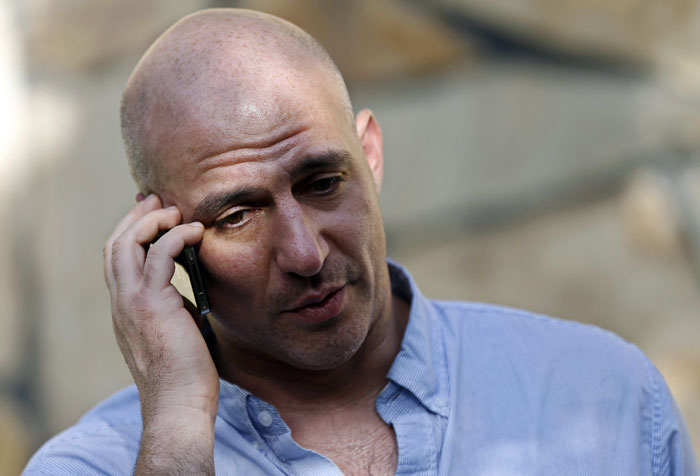AFP/Kabul Afghanistan on Wednesday ordered a New York Times correspondent to leave the country after he wrote an article saying government ministers and officials were threatening to seize power to end a stand-off over election results. The attorney general's office said the article was "against the national interests and the national security of Afghanistan" and that Matthew Rosenberg must depart within 24 hours. The move underlined fears that media freedoms gained since the fall of the Taliban regime in 2001 are being lost as the US-led military intervention and civilian aid programme in Afghanistan wind down. "This decision was taken after the attorney general considered his story on the election deadlock and suggestion of an interim government, quoting unknown high-ranking government officials," the attorney general's office said. "Since the election, the New York Times has repeatedly published such articles sourcing them to unknown government officials." The Afghan government has been paralysed for months after the first round of the presidential election failed to produce a clear winner and the second round of voting in June triggered allegations of massive fraud. Both Ashraf Ghani, a former World Bank economist, and former anti-Taliban fighter Abdullah Abdullah have claimed victory in the race to succeed President Hamid Karzai. The impasse has raised fears of a return to the divisions of the 1990s civil war, when ethnic conflict ravaged the country and allowed the Taliban to seize power. The New York Times story suggested a plan was being formed to create a committee-run "interim government" - a move that would end international hopes that the costly intervention in Afghanistan would lead to democracy. "They have not even told us whether there is an order for me to go," Rosenberg told AFP. "They are putting out statements to the media, which to us looks like grandstanding. At no point have they said any laws have been broken. "This is a politically motivated thing, and the attorney general is doing the bidding of the top of the government. "Media freedom has been one of the really great achievements of the past 12 years, so it is dismaying." Rosenberg said the newspaper was seeking legal advice and no decision had been made on whether he would soon fly out of Afghanistan. The palace issued a statement saying that President Karzai had told a meeting of election and UN officials that "such articles show foreigners' interference to try to destabilise Afghanistan and should not be allowed". All media were severely restricted under the Taliban's 1996-2001 rule, but newspapers, TV stations and websites have proliferated in recent years. US State Department spokeswoman Marie Harf on Tuesday urged the Afghan government "to respect fundamental freedoms of expression and expression of the press" after Rosenberg was questioned. NATO soldier dies in Kabul stabbing A NATO soldier was stabbed to death on the streets of Kabul on Wednesday, officials said, in an unusual attack that highlighted hostility to foreign troops who are withdrawing from the country. The soldier, whose nationality has not been released, was attacked by a civilian when a coalition convoy was held at a police checkpoint on the road from the airport into the centre of Afghan capital. “A young man stabbed the foreigner in his neck,” Nisar Ahmad, a district police officer on duty, said. “He was rushed to hospital and the attacker ran away.” NATO’s International Security Assistance Force (ISAF) issued a statement saying that “a service member died of wounds as a result of an attack in eastern Afghanistan today.”

New York Times reporter Matthew Rosenberg, 40, talks on his phone after an interview in Kabul on Wednesday. Afghanistan has given Rosenberg 24 hours to leave the country.
